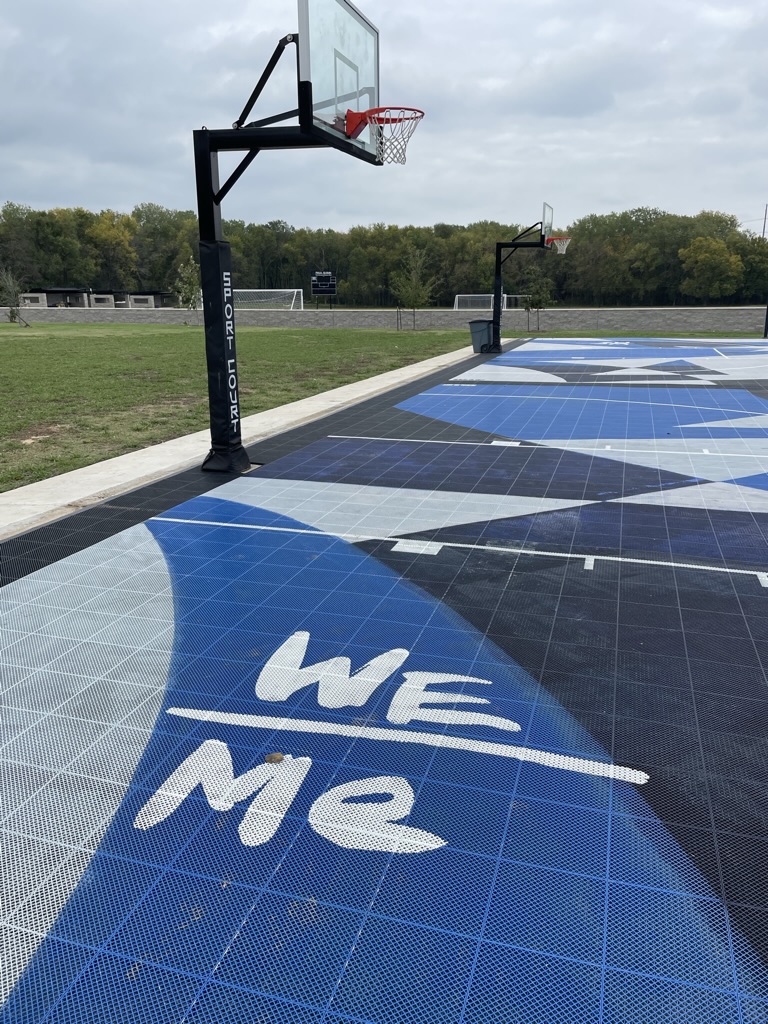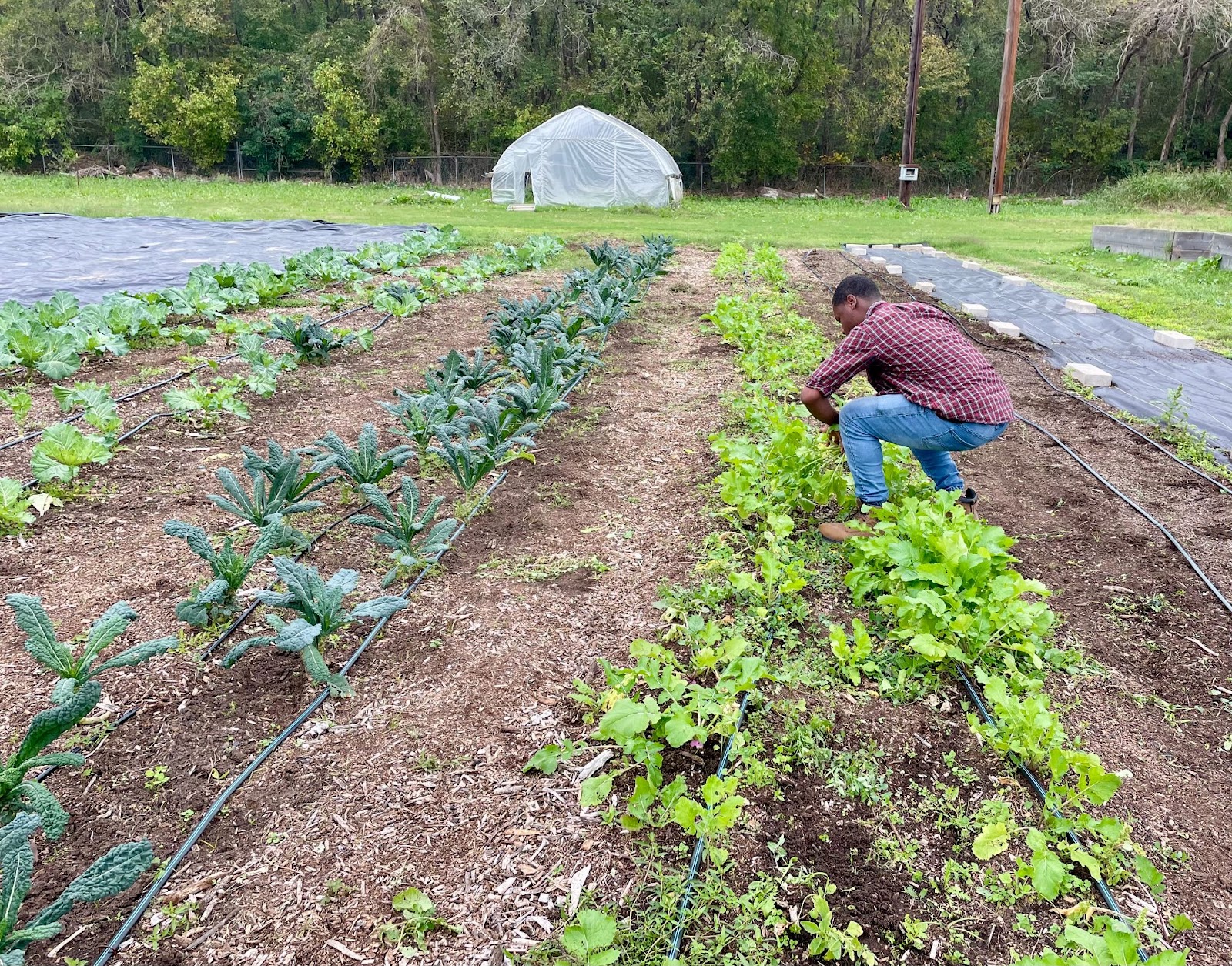Mariya, Patrick, Jacob, and Jonathan go to class half of the week and work on the campus farm on the other half. Next year they might be working at JPMorgan Chase, Southwest Airlines or one of the other Dallas business partners.
The Work Program at Paul Quinn College provides students with meaningful service opportunities that help develop competitive job skills while contributing toward the cost of their education. Work and reduced tuition are part of the New Urban College Model, adopted at PQC in 2015, which enables students to graduate with less than $10,000 of debt.
PQC is one of nine federally funded work colleges and the only urban and Minority Serving Institution in the Work College Consortium, a collaboration of “Distinctive liberal arts colleges promoting purposeful integration of Work-Learning-Service.”
From Crisis to Innovation to Scaled Impact
Founded in 1872 by African Methodist Episcopal Church preachers in Austin, the school’s original purpose was to educate freed slaves and their offspring. The private, faith-based, liberal arts-inspired college moved to southern Dallas in 1990.
The college was indebted and struggling in 2002 when Dallas attorney Michael Sorrell joined the board. After four presidents came and went, Sorrell was appointed as president by the board in 2007. The following year, with only 445 students, the college lost accreditation (and access to federal aid). Sorrell scrambled and found a new accreditor, but by 2009 there were only 171 students on campus.
The turnaround started with an entrepreneurial mindset and heart of servant leadership. Sorrell coined the four L’s of Quinnite Servant Leadership: leave places better than you found them, lead from wherever you are, live a life that matters, and love something greater than yourself.
While rebuilding an engine of economic and social mobility, Sorrel advanced a culture of mutuality with a new mantra, “WE over me” that started showing up on buildings and basketball courts around campus.

Sorrel made a lot of tough budget cuts including the football team. In 2010, Sorrel invited the Director of Service to turn the abandoned football field into the We Over Me Farm, an urban garden and part of the work program. Farm produce feeds students on campus, is distributed to local restaurants and donated to neighborhood charities.

In the middle of the turnaround, at the urging of UMBC President Freeman Hrabowski, Sorrel went back to school and added a Penn doctorate to his resume. Research for his 2015 dissertation laid the foundation for the New Urban College Model.
The new business model cut $10,000 off the old price of about $24,000 and added a work credit of $5,000. With Pell and other grants students spend (or borrow) only $2,375 per year.
At Sorrell’s request to make the academic programs more relevant and the students better prepared, Chris Dowdy, VP Academic Affairs, led efforts to implement Reality-Based Education “linking project-based learning, experiential learning, and a pragmatic approach to the liberal arts.” That means more reasoning, speaking, and writing across the curriculum.
In 2018, the faculty adopted a learning management system and began converting courses to a hybrid instructional model which enabled them to shift quickly to remote learning during the pandemic.
With a lower price point and new attitude, enrollment grew and so did donations. For the first time in 40 years, new buildings went up on campus including a residence hall and a spectacular gymnasium/history lesson.
Dowdy created a partnership with Guild Education to offer PQC courses and degree programs to working adults through employer sponsorship.
In February, with support from the Rainwater Foundation, PQC made a remarkable offer to Fort Worth high school students that they could enroll two adults with them. If a student is accepted with at least a 3.0 grade-point average and qualifies for federal aid, they can choose two family members or friends to enroll with them. The goal is to change the course of a family’s financial situation, shift pressure off of first-generation college students and increase the odds of success when a family can witness each other working toward a certificate or degree. The family members or friends can purse a degree or credential through one of the online programs. The goal is to change the course of a family’s financial situation while removing a bit of the pressure from a first-generation college student and increasing the odds of success when family members can experience success together while working toward a certificate or degree.
With enrollment around 1000, the new mix is nearly 80% online. Dowdy thinks they’ll see more in person enrollment in the next few years.
Some of the future in person enrollments are likely to come from the two secondary schools on the PQC campus: KIPP Oak Cliff Academy and Haynes Global Preparatory Academy, a Dallas ISD middle school that features the International Baccalaureate curriculum and will add high school grades.
Conclusion
Working your way through college isn’t a new idea. PQC’s purposeful integration of work and service into the academic and business model of higher education is new and important for developing a sense of purpose, building job-ready skills and maintaining affordability.
It is promising to see work-focused state initiatives like California’s College Corps which provides a $10,000 scholarship in exchange for 450 hours of service.
Leadership aspirations for PQC students are unique and powerful: “The goal is greatness, greatness for you and for those you will lead.” The focus on leadership and service in academic programs, work study and culture have been key to the PQC transformation.
Sorrel’s entrepreneurial leadership including rapid testing of new ideas and divesting low contribution programs has set the stage for scaled impact for Paul Quinn and the work college concept.
This post is part of our New Pathways campaign sponsored by American Student Assistance® (ASA), Stand Together and the Walton Family Foundation.
This post was originally published on Forbes.


/cdn.vox-cdn.com/uploads/chorus_image/image/62810996/Amm_DeepSentinel_01.0.jpg)

More Stories
TheyDo fires the starting gun on the race to own the customer journey • TechCrunch
How To Develop Buyer Personas: A Crash Course
stocks to buy: 2 top stock recommendations from Aditya Agarwala